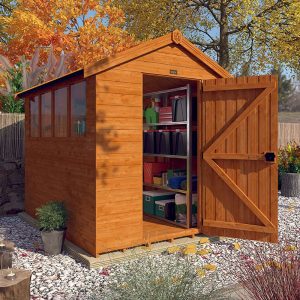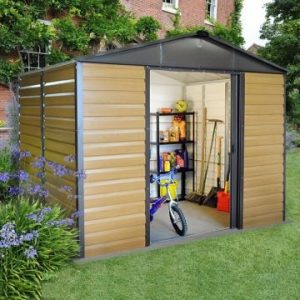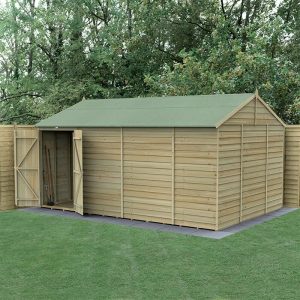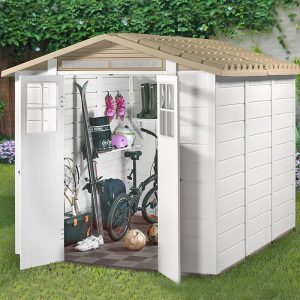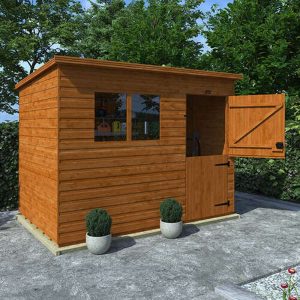Designed to withstand the challenging elements of British weather, the Holt 6′ x 16′ Pressure Treated Shiplap Modular Apex Potting Shed offers multiple options for window placements to optimize natural sunlight usage. It also features a complimentary internal shelf for strategic plant positioning, promoting optimal growth. The tongue and groove design, pressure treated for durability, ensures a stronger structure compared to standard overlap cladding.
With a reliable floor, this shed can securely hold heavy items, making it a versatile storage solution for plants and gardening essentials. Delivery is handled by a specialized pallet service, bringing the shed to your curb along with all necessary fittings and instructions.
Although pre-treated with pressure-treated tanalised, we recommend further timber treatment with oil or spirit-based solutions to enhance water resistance and extend the shed’s longevity.











